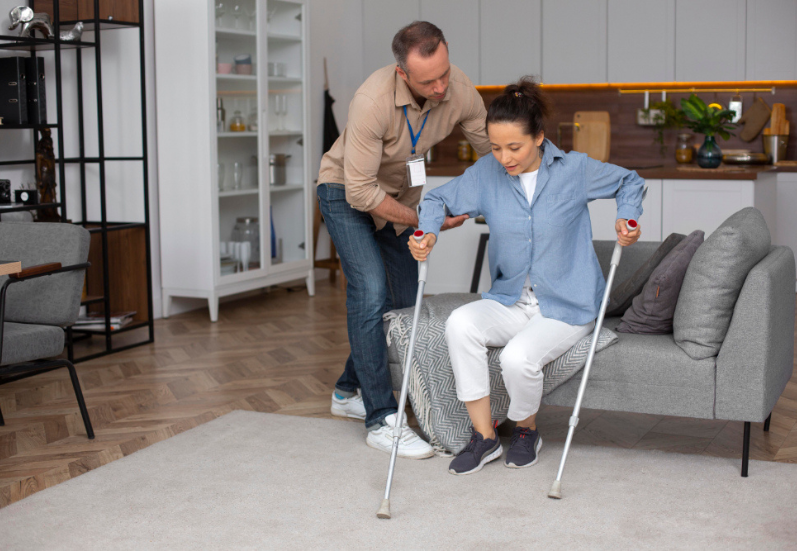
If you have been trying to understand your rights regarding personal injury law in New Jersey, you have reached the right place!
Experiencing an injury caused by someone else’s negligence can be overwhelming, both emotionally and financially. Securing just compensation and justice requires knowing your rights and knowing what to do.
Having a reliable legal assistant helps in understanding and protecting your rights after an injury in NJ. They outline the necessary steps to take following an injury, which is crucial in navigating the intricate claims process.
A clear plan guarantees that you are able to uphold your rights at every stage, whether you’re reporting the incident, making a claim, or negotiating with insurance companies.
Understanding Personal Injury Law

Before talking about the legalities of the Personal Injury law in New Jersey, you must get to know a little about what this law means and what its implications are.
To put it in plain words, personal injury law is a form of civil law that deals with the type of cases where an individual has been injured because of someone else’s negligence.
This law generally covers the mind, body, as well as the emotion of the victim. For instance, unlike in other cases, when it comes to personal injury law, the emotional distress that the accident has caused you will also be taken into account. Isn’t that interesting?
Now, you might think: How does a personal injury case work? Let me tell you how!
In such a case, the plaintiff (the injured party) has to prove that the defendant was responsible for the injuries that they are facing.
Additionally, they can also prove that there has been a breach of duty that the defendant has caused by not caring for the injured person (in the form of medical compensation).
There are several forms of personal injury law cases. Some of the most common ones are as follows:
- Car Accident
- Medical Malpractice
- Abuse
- Animal Injury
Now, generally, people settle these cases through versal negotiation without going to court. Often, there are financial settlements that both parties reach.
However, if the case goes to court and ends in a trial, it depends on the judge to determine the liability and the calculation of the damages.
Steps to Take After an Injury in New Jersey
The immediate steps you take to file an injury claim in NJ after receiving an injury can significantly affect the outcome of your claim.
You can safeguard your health and Personal injury legal rights in New Jersey by taking prompt, calculated action. The most important actions that any injury victim should take are listed below:
Seek Medical Attention and Report the Incident
Your first priority should always be your health. In order to document your injuries and provide important evidence for your claim, get medical attention immediately.
Notifying the appropriate authorities, like law enforcement or a property owner, about the incident creates an official record that may be essential for future legal actions.
A comprehensive medical assessment guarantees that any underlying problems are found early, even if injuries appear minor.
Document Evidence and Keep Records
Maintaining evidence is essential to constructing a compelling personal injury case. Take pictures of any property damage, injuries, and the scene of the accident. Obtain copies of police reports or incident documentation and ask witnesses for their contact information.
To bolster your claim, keep thorough records of all medical procedures, invoices, and communication services with insurance providers. Once gathered, verify all of it and include it in the submission of a complaint.
Understanding Your Legal Rights With Personal Injury Law in New Jersey
Aside from understanding personal injury law in New Jersey, being knowledgeable of your legal rights as a NJ resident is crucial after you’ve taken the first actions to protect your health and gathered evidence.
This information will help you navigate the claims process and make well-informed choices that serve your interests.
Filing a Claim Within New Jersey’s Deadlines
Injury statute of limitations in NJ are specific deadlines for filing personal injury claims. Typically, you have two years from the date of the incident to file a claim (N.J. Stat. § 2A:14-2(a) (2024).
Missing this deadline can result in losing your right to seek compensation. Consulting an attorney early ensures compliance with these critical timelines and shields you from expensive mistakes.
Compensation You May Be Entitled To
New Jersey accident compensation law allows injury victims to seek various forms of settlements, including:
- Economic damages: Medical expenses, lost wages, and rehabilitation costs.
- Non-economic damages: Pain and suffering, emotional distress, and loss of quality of life.
- Punitive damages (in rare cases): Additional compensation to punish gross negligence or misconduct.
Nonetheless, having a legal assistant who is well-versed in the injury claim process in New Jersey maximizes your compensation claim.
They make it easier to understand the full scope of this potential compensation to ensure that all losses, both immediate and long-term, are accounted for in your claim.
Navigating Insurance and Maximizing Your Claim with Personal Injury Law in New Jersey
While being aware of your rights is crucial, legal help for injury victims in New Jersey is necessary to pursue a personal injury claim successfully.
Without knowledgeable assistance, navigating insurance companies, obtaining proof, and guaranteeing adherence to New Jersey’s legal requirements can be quite difficult.
Because insurance companies’ main objective is to reduce payouts, dealing with them can be frightening.
When negotiating on your behalf, a skilled personal injury lawyer makes sure that settlement offers accurately represent the worth of your claim.
In order to improve the chances of a successful outcome, they can also contest rejected claims or undervalued settlements.
If you ever get involved in an accident, look for a New Jersey Personal injury lawyer to give you peace of mind.
Along with managing the legal complexities of your case, they make sure to make your claim as compellingly as possible.
From obtaining evidence to defending you in court, their knowledge expedites the procedure and protects you from faulty mistakes.
Read Also:
- George Sink Attorney: Your Guide to a Successful Personal Injury Case!
- Legal Considerations for Dementia Patients in Personal Injury Cases
- 10 Situations Demanding a Lawyer: When to Seek Legal Counsel











0 Reply
No comments yet.